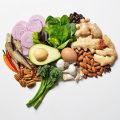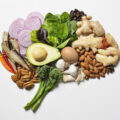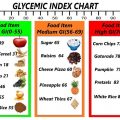It’s tempting to consume foods that will make you feel better, especially when you’re feeling down. Still, there are several consequences on foods that are sugary and high calorie-sweets that may affect and cause a negative impact to your body.
As a result, you may be wondering if any nutritious foods will help you feel better.
Lately, there has been an increase in studies on the link between nutrition and mental health. However, numerous things can influence mood, including pressure, the surroundings, lack of sleep, heredity, anxiety disorders, and dietary inadequacies.
Now, if you’re suffering from a mental health problem, then you might have prescriptions between ssri vs snri, which are both helpful in tackling the issue. However, keep in mind studies have shown that particular foods can help boost overall mental wellbeing and alleviate specific forms of mood problems— so you should balance out your diet while taking medications.
Nuts
According to Jacka, consuming fresh nuts every day is highly recommended. Nuts are high in fiber, protein, and good fats. It is highly nutritious but takes note of the calories that can mount up rapidly. Aim for 1 ounce of mixed nuts every day, containing walnuts and almonds. Eat walnuts and almonds high in omega-3 fatty acids for the best long-term results.
Grass-Fed Beef
Grass-fed beef has more conjugated linoleic acid than grain-fed beef, which fights against stress hormones and aids with excess weight. You can also consider lamb as a substitute for grass-fed red meat. It has heme iron, and it is the most easily absorbed type of iron. The brain requires a continual supply of oxygen, which is dependent on consuming sufficient iron for red blood cells. Red meat is particularly high in vitamin B12 which is one of the main sources of zinc, which has been shown in studies to increase student’s performance in academics.
According to Jacka, high-quality proteins are the foundation of a mood-boosting way of food daily intake. She recommends grass-fed beef as the basis of a healthy protein to be included in your diet to help you balance your stress and your diet.
As per Jacka’s research team, grass-fed beef has higher-good fats like omega-3 fatty acids, which may help with depression management.
Salmon
Salmon is enriched with nutrients and healthy fats that help our body provide nutrients that are not produced on their own. Omega-3 fatty acids are found in the membrane that lines cells throughout the body, including the brain. Consumption of omega-3 fatty acids-rich fish, such as salmon, has been demonstrated to help deal with depression.
Also, salmon is an anti-inflammatory meal. As per a new study published in January, increased inflammation in the body may play a significant role in depression.
Dark Chocolate
Dark Chocolate is considered “superfood” in its purest form. It works as an antioxidant as well as various substances that interact with the chemistry of your brain to boost good feelings.
Also, dark chocolate and cocoa include tryptophan, an amino acid that your brain needs to make the neurotransmitter serotonin. It is a feel-good hormone that improves your mood and emotions.
Unlike any candy bar that makes you feel glum after eating it, dark chocolate may help lift your mood. According to a study, dark chocolate may also benefit your immune system and eyesight with your brain.
But be cautious also with the chocolate you are choosing. Researchers chose dark chocolate with 70% cacao in their study, a recipe intended for the darkest of dark chocolate. Because just 30 percent of the bar of chocolate is glucose and dairy, the chocolate frequently feels bitter rather than sweet.
Fermented Foods
Fermented foods are beneficial to the health of the healthy microbes inside the stomach. Researchers prove that such microorganisms have a significant impact on both mental and physical health.
There are many fermented foods that are loaded with beneficial and good bacteria known as probiotics. You’ve surely heard the term and are aware that these microbes are beneficial to keeping a healthy digestive system.
Types of fermented foods, such as kimchi, yogurt, probiotics, tea, pickles, or sprouted and fermented protein, have been shown to boost gut health and vitality. Probiotics are produced during the fermentation process, which enables living bacteria to grow in foods and convert carbohydrates into alcohol and acids. These living microorganisms help good bacteria develop in your stomach and may raise serotonin levels.
Serotonin is a neurotransmitter that influences mood, stress response, appetite, and sexual drive, among other things. Your gut microbiome, or the group of good bacteria in the digestive tract, produces up to 90% of your body’s serotonin.
Furthermore, the gut microbiome influences brain health. A link between healthy gut bacteria and decreased rates of depression is starting to emerge in research.
Berries
Berries are recognized to be one of the healthiest and best foods to be included in our diet. Allowing stress to get in your way is not good for your health and wellbeing, particularly when you are depressed. It might spin out of control, leaving you mentally and physically exhausted.
Berries are high in anthocyanins, which are proven to improve brain function, as well as antioxidants, it supports brain and nervous system development. Berries are safe to pile on because they are low in sugar and calories.
As a component of a well-balanced diet, all fruits are beneficial; however, berries are especially beneficial to our brain.
Flavonoids, abundant in berries, assist in inducing relaxation, boost concentration, and relieve symptoms and inflammation.
Kale With Spinach
Because of their high Vitamin B concentration, leafy greens such as spinach and kale are essential for maintaining optimal brain function. It creates serotonin, a mood-enhancing hormone that aids in the promotion of mental health. A happy and energetic body comes from a balanced and healthy brain. Begin your day with a bright boost in the morning with some extra kale and eggs for breakfast. It produces amino acids that will allow you get back on track and will provide you a spontaneous boost of energy. Dark, green leafy vegetables, such as kale and spinach, are high in omega-3 fatty acids and anti-inflammatory nutrients. Magnesium, abundant in greens, is vital for brain function and temperament.
Almonds
Almonds are a good source of healthful fats for your brain. Certain fatty acids are required to help serotonin and dopamine circulate around the neurological system. Neurotransmitter function weakens when we do not consume enough omega-3 fatty acids, leading us to symptoms of despair, stress, exhaustion, and depressed mood. Also, almonds are rich in tyrosine, which is one of the basic components for the creation of dopamine and some other mood-related neurotransmitters.
They are also high in tyrosine, a chemical that has been shown to reduce cognitive deterioration, particularly in response to a stressor.
Oats
Balanced blood sugar levels help to control and regulate mood. Oats are abundant in soluble fiber like berries that help balance blood sugar. It generally contains selenium, a component that improves mood. Oats contain beta-glucan, a unique fiber which has been linked to cholesterol reduction.
Oats are also high in the mood-boosting mineral selenium. It’s ideal for a healthy breakfast or a healthy snack that is not time-consuming.
It is a nutritious grain that can boost your mood throughout the day. They come in various forms, including instant oats, porridge, cereal, and porridge.
They are a good source of dietary fiber, with 8 grams in just one raw cup, 81 grams. Fiber slows the absorption of carbohydrates, providing for a progressive flow of sugar into the bloodstream and maintaining levels of energy.
Importance of Improving your Mental Health Through Diet
According to Hines, healthy eating has substantial mental health advantages, but it all starts in your stomach, as it does with all food. “Because an unhealthy diet influences our digestive health, and because our gut is considered our second brain, new research studying nutrition’s impacts on intestinal microbes, neuroplasticity, oxidative stress, and systemic inflammatory, as well as correlating diet and mood with the ever-growing proof,” Hines explains.
The best part of this mood-boosting food is that you probably always have them in your pantry or refrigerator at home. It is unnecessary to go out there to get a dose of delight!
SSRI vs. SNRI
SSRIs might aid in the growth levels of serotonin in the brain, while SNRI drugs stimulate the brain and produce more serotonin and norepinephrine. Both have minor side effects and will wither away as the body adjusts to medicine.
Drowsiness, headache, excessive thirst, drowsiness, urinary problems, defecation, and difficulty in sleeping are the most prevalent adverse effects of SSRIs and SNRIs. These drugs can also cause anxiety, excess weight, headaches, puking, and diarrhea.






